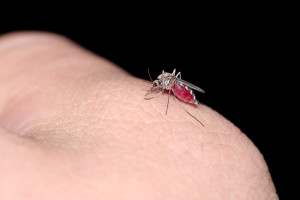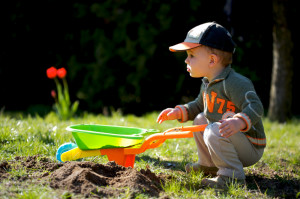Did you know that adult female mosquitoes are the only ones that will bite humans? It’s true!
The little ladies need protein from a blood meal to develop their eggs. Some female mosquitoes only prefer biting certain animals such as birds and cattle. Diseases are spread by mosquitoes that bite multiple species in order to attain their blood meal. There are two serious mosquito-transmitted diseases found in the Massachusetts area.
West Nile Virus (WNV) is transferred to humans by mosquitoes that have bitten an infected bird. People who become infected can display anything from no symptoms at all to fever, headache, and body aches, nausea, vomiting, and sometimes swollen lymph glands. There is no specific treatment for West Nile Virus.
Eastern Equine Encephalitis (EEE)
EEE is regarded as one of the most serious mosquito-borne diseases in the
United States due to the high mortality rate. The disease is usually seen in animal species such as horses, ponies and donkeys. It infects the central nervous system and can be fatal. According to the Centers for Disease Control, in 2012, a total of 7 human cases of EEE were diagnosed in Massachusetts. This is the highest number of EEE annual cases in the state since 1956.
Protect your family with Quincy mosquito control.
The best way to control and prevent mosquitoes from biting your family and pets is to have your yard professionally treated by a licensed mosquito control company. There are also several tips that we suggest to ensure that mosquitoes to not have a chance to breed in your yard. Mosquitoes need moisture or small amounts of standing water in which to lay their eggs.
Follow the 7 T’s of mosquito control to eliminate any standing water in your yard:
1. TIP
Reduce standing water to eliminate mosquito threats, including those in children’s sandboxes, wagons or plastic toys; underneath and around downspouts, in plant saucers and dog bowls. Other hot spots include tarps, gutters, and flat roofs.
2. TOSS
Remove excess grass, leaves, firewood and clippings from yards.
3. TURN OVER
Turn over larger yard items that could hold water like children’s portable sandboxes or plastic toys.

Dog water bowls should be dumped and refilled every week. Bird baths should be tipped over.
4. REMOVE TARPS
If tarps stretched over firewood, boats or equipment aren’t taut, they’re holding water.
5. TAKE CARE
Take care of home maintenance needs that can lead to standing water. This includes cleaning out gutters, making sure downspouts are adequately attached, keeping your grass cut low, and check irrigation systems for leaks.
6. TEAM UP
Despite taking all precautions in your own home, talking with neighbors is a crucial component to mosquito and tick control. Homes with little space between lots can mean that mosquitoes breed at a neighbor’s house and affect your property.
5. TREAT
Utilize a mosquito barrier treatment around the home and yard. Using a barrier treatment at home reduces the need for using DEET-containing bug spray on the body.
Mosquito Control in Boston Metro South is available in…
Whether you are in Quincy, Randolph, Weymouth, Hingham, or any of the many surrounding areas, it essential that your family is protected from hungry female mosquitoes and the diseases they carry.

Dave Macchia, Mosquito Control Enthusiast


